Like a vessel, adrift at sea, Argentina marches on, trying to find its soul. As the economy falls off a cliff, and prognosticators estimate the recession could extend well into next year as the peso continues to sink in value—dragging all of us down with it— the publicprivate corruption scandal unleashed by the handwritten notes of a chauffeur continues to reverberate. Cristina Fernández de Kirchner, forced by circumstance, asked the Senate to allow Federal Judge Claudio Bonadio to search her private residences in Buenos Aires City and the Patagonian province of Santa Cruz, the destination of black money airlifts using the Presidential fleet of airplanes, including the Tango 01. Even as most of society believes the annotated notebooks contain the truth – and even a big percentage of Cristina’s die-hard supporters point to her as ultimately responsible – CFK remains the strongest candidate of the opposition given a fragmented Peronismo. This, in turn, plays to President Mauricio Macri’s handbook, who has made polarisation with Missus Kirchner a foolproof electoral strategy.
Yet, a potential “black swan” could drastically alter Macri’s plans.
Ever a fan of the spotlight, Cristina faced the music in a Senate hearing convened to vote on whether they would grant Bonadio approval to search her private residences, given Senatorial immunity. Her speech was tragicomical, accusing non-Kirchnerite Peronists of conspiracy, claiming the whole corruption investigation was a plot to keep her from running in 2019. It was pathetic to see CFK claiming she has nothing to hide at this juncture, nearly a month after the judge had first requested access. Interestingly, the whole corruption scandal – which directly points to the former president and her late husband –has actually helped Cristina: her positive image rating has risen to 31.4 percent, according to a poll released by Synopsis, up from 30.9 percent a year ago.
One thing the former president is spot on about is that dissident Peronists, led in the Senate by Miguel Ángel Pichetto, know they have no chance if she’s around. It’s not just Pichetto, several have thrown their hat into the ring including Sergio Massa, Juan Manuel Urtubey, Florencio Randazzo, Alberto Rodríguez Saá, Felipe Solá, and others. Not one of them comes even close. Knowing this, Macri has remained defiant, despite a crumbling economy. In June, economic output contracted 6.7 percent, falling to its lowest level since 2009. Several economists now estimate a contraction in 2018, with stagflation persisting. Yet Cambiemos remains optimistic, expecting the Peronists to cannibalise themselves.
But the ruling coalition is not immune to what’s going on elsewhere. Not only must it suffer the negative economic consequences of the growing corruption scandal — as financing dries up and investors flee, paralyzing public works, one of the few engines of growth Macri was relying on — but also investigations into how Macri’s party financed its national and provincial campaigns in 2015 and 2017 are raising questions.
Noticias magazine has published an investigation indicating Macri told businessmen he needed US$100 million for the presidential campaign. Officially, he raised US$15 million, and PRO, his party, can’t explain where the rest came from. Initial investigations point to at least 1,200 campaign donations from people who had no idea that money was being donated on their behalf, many of them employees from firms that secured lucrative government contracts from Cambiemos, others beneficiaries of pensions and social welfare. Most of these are in Buenos Aires Province, where Macri’s political wunderkind, María Eugenia Vidal, may begin to lose her high approval ratings as a consequence. Vidal is already feeling left alone in the middle of the scandal, as initial fissures in the ruling coalition’s inner circle grow deeper.
In the face of a perfect storm, Macri’s 2019 re-election could be in danger. With Cristina’s homes being searched by Bonadio, and the so-called bribery notebooks scandal growing by the minute, Federal Prosecutor Carlos Stornelli could find a smoking gun that so directly incriminates the former president and current senator, enough that her candidacy could falter. That would leave Macri’s chief strategists — Cabinet Chief Marcos Peña and Ecuadorean advisor Jaime Duran Barba — without their favourite villain, in the middle of a tough recession. It would give the opposition renewed vigour. Yet mutual distrust amongst dissident Peronists makes it unlikely they would line up behind a single candidate, unless a unity candidate can be found.
In this week’s edition of the Buenos Aires Times we publish an interview with former president Eduardo Duhalde — who ultimately mentored Néstor Kirchner into the presidency — and Ricardo Alfonsín from the Radical Civil Union (UCR). Duhalde spoke of the “black swan”: Roberto Lavagna. Mentioned previously in this column, Lavagna could be the perfect candidate to oppose Macri. He is a lifelong Peronist with a past in the Radical Civil Union, an economist with experience in crisis management. Lavagna could attract non-Kirchnerite Peronists, progressive Radicales, and disillusioned members of the Cambiemos coalition. His approval ratings are even higher than Vidal’s, and, as Duhalde confirmed in our conversation, Lavagna has already decided to run. Aged 77, younger Peronists wouldn’t see in him a threat to their future aspirations. Macri, be warned.
As with most things in life, direct causality doesn’t exist.
While the 20th century was punctuated by positivism, which
was the defining theoretical framework of modernity, today
things have become fluid, defined by relativity. In terms of
corruption, it’s no single actor but rather the combination of
people, necessity, greed, culture, and more that generate the
conditions for systemic fraud at a national level. Not only
were the politicians guilty, so were the businessmen who
paid bribes and the journalists who looked the other way.
Clarín, La Nación, and the predecessors of Infobae, owned
by Daniel Hadad, were complicit (in this week’s Noticias,
documents prove the now famous chauffeur, Oscar Centeno,
delivered envelopes to Canal 9 and Radio 10 in 2006, both
owned by Hadad). It’s not just the Kirchnerites, but also
those in Macri’s corner who have their hands dirty. The Black
Swan, too, is a post-modern phenomenon, a consequence of
unpredictability. And so is Cambiemos.related news







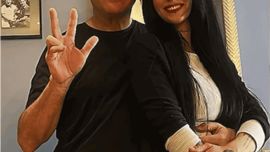
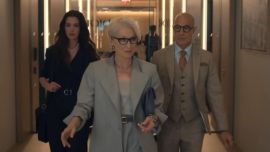
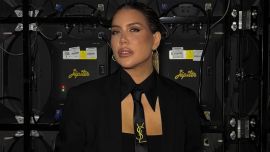




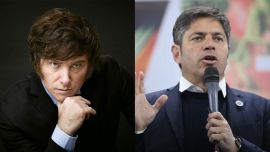
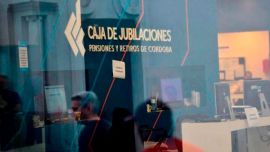

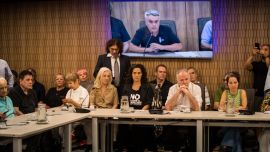
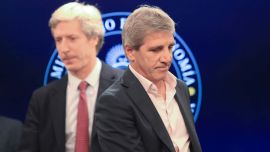
Comments